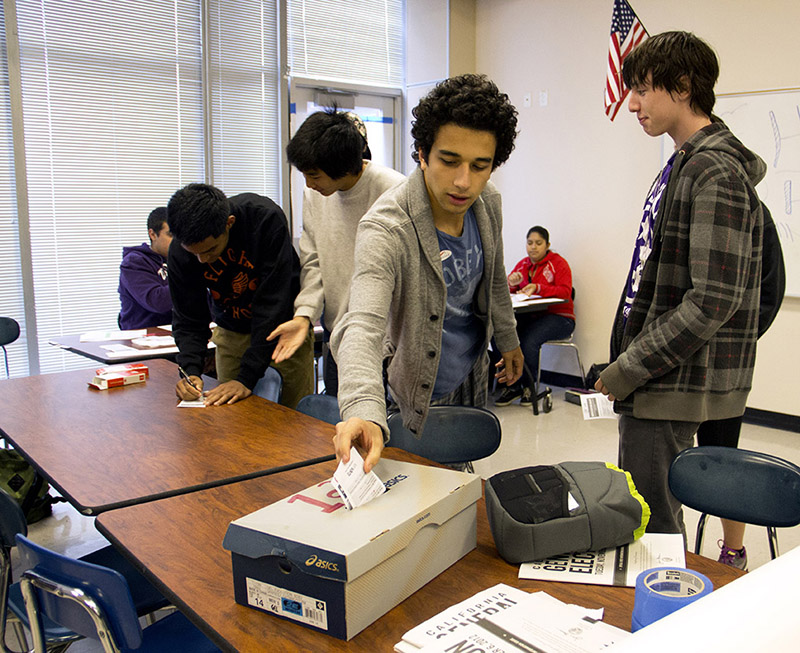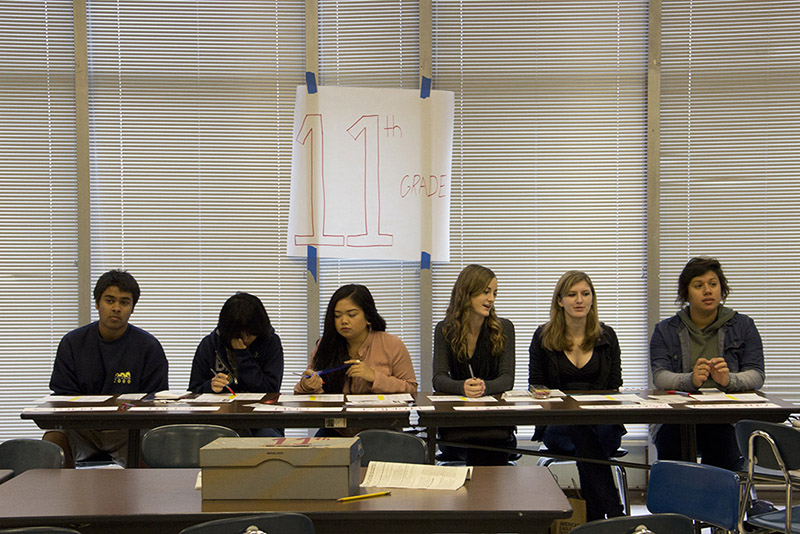

On Oct. 30, Aragon held a mock election open to all students. Government teacher Dr. Frederick Chancellor initiated the election and was aided by members of Leadership, the Black Student Union and Service Commission. Students were able to elect the president and state senator as well as vote on state propositions 34, 35, 36 and 37.

While the social studies department chose four of the eleven propositions that would spark student’s interests, senior Sally Hosokawa comments, “I think they left out a lot of the important ones like Prop 32… But I also understand … why they left it out, because it’s really subjective, and it’s a lot more controversial than a lot of the other ones.”
Sophomore Elisa Han says, “I don’t think [the propositions] have been put out to the public as much, so it’s hard to give my opinions on the propositions when I hardly know anything about them.”
Of the 1,449 students at Aragon, 82 percent cast votes. The results were a victory for Democrats: President Barack Obama won a total of 933 votes and Senator Dianne Feinstein won a total of 941 votes.
All propositions voted on during the mock election passed. Prop 34, which favored the elimination of the death penalty in California, won with 603 votes. Prop 35 won with 825 votes, increasing penalties for Human Trafficking. Prop 36, a modification of the Three Strikes Law, won with a total of 723. Prop 37, which mandates the labeling of genetically engineered foods, won with 719.
Aragon’s results were similar to the majority of participating schools in the state of California. The majority of schools also elected President Obama, Senator Feinstein, and passed Propositions 35, 36, and 37.
While San Mateo County and other neighboring counties tend to be liberal, many areas, such as Orange County and Fresno County, are primarily composed of Republicans. AP Government teacher Scott Silton comments, “Pro-capital punishment has been the majority opinion in this country—relatively everywhere—for a long, long time. It may be that teenagers don’t like authority, so when in doubt, vote for less punishment, less authority. Or, it may be that there’s a large number of people who have any religious or moral objection to the death penalty.”
On a national level, Aragon’s preference for Obama was evenly matched by nationwide results. Silton remarks, “I think it’s pretty obvious that Aragon and the student body leans left. San Mateo County went for Obama at around 70 to 30 among registered adult voters. So, Aragon students had an even higher supermajority for President Obama. You take a Democratic area like San Mateo County and a slice of young people in that county, it’s not surprising that it was so overwhelmingly in favor of Mr. Obama.”
As for the mock election, Chancellor, who is a strong advocate of voter participation, says, “[The mock election] is part of the learning process for the students… Many students learn that they don’t know how to vote for these propositions because they hadn’t taken the time to learn on their own.”
Similarly, Silton remarks, “I do want students to become active citizens… and get in the habit of thinking about that before they are actually able to cast a ballot, so when they’re eighteen, it’ll be normal. It’ll feel like a routine or a social expectation. I like that the state is making the effort to do this because it feels a little bit more respectful that the state Department of Elections is at least making a separate tally and getting people involved in those civic habits.”
In the future, Chancellor hopes that students become even more knowledgeable. He remarks, “I think it’s important to not only read the newspaper and magazines…I also think it’s important that they talk with their parents. They need to understand what their parents believe and why they believe it, because that’s part of what that family is and why that family votes, and why it votes that way.”
